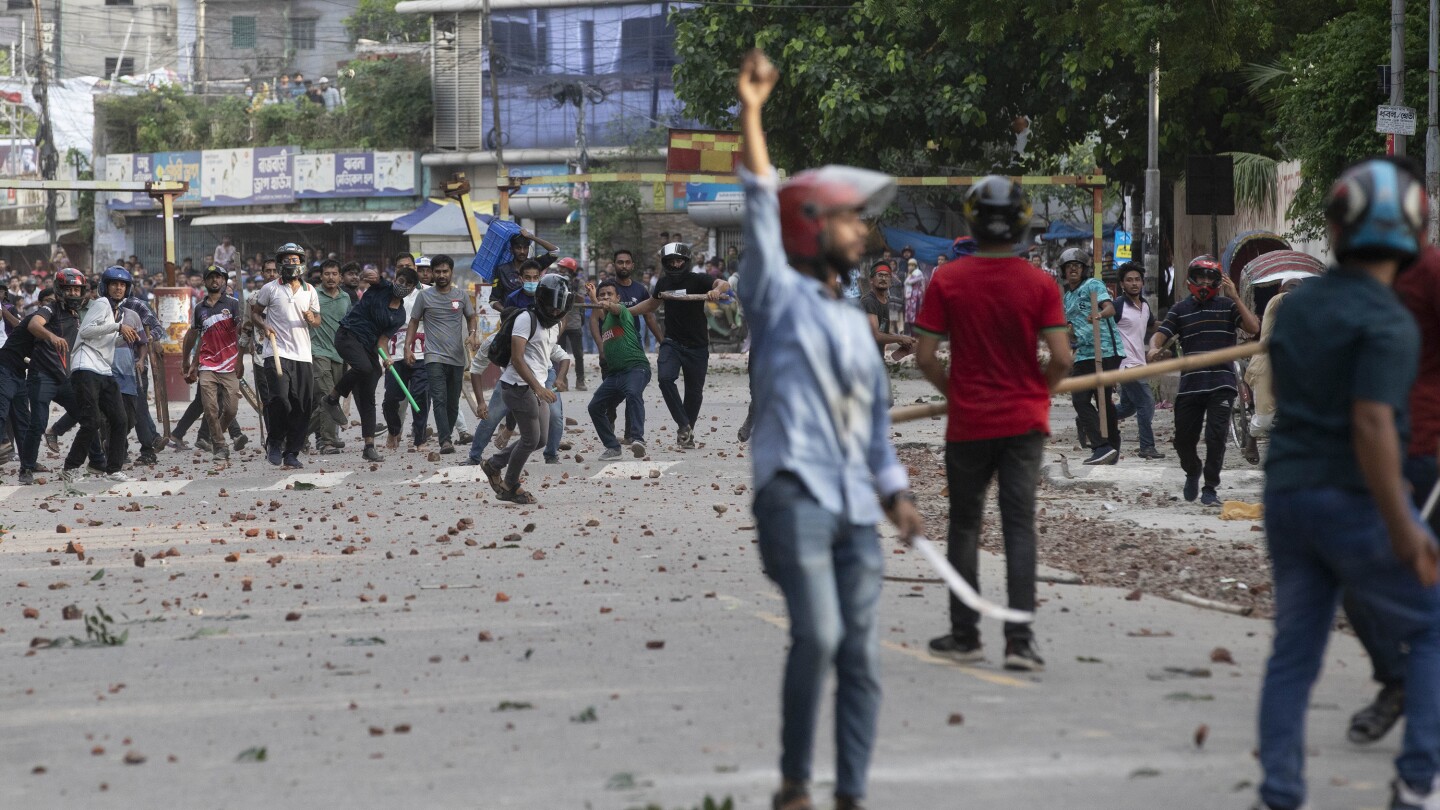DHAKA, Bangladesh (AP) — Police fired tear gas and charged with batons during violent clashes between a pro-government student body and student protesters overnight, leaving dozens injured at a public university outside Bangladesh’s capital, police and students said Tuesday.
The violence spread early Tuesday at Jahangir Nagar University in Savar, outside Dhaka, where the protesters were demanding an end to a government job quota for family members of heroes who fought in Bangladesh’s war of independence in 1971.
The quota system also reserves government jobs for women, disabled people and ethnic minority groups. The system was suspended in 2018, which brought similar protests to a halt at the time. But in a decision last month, Bangladesh’s High Court asked for the 30% quota for veterans’ descendants to be restored.
That triggered fresh protests, with demonstrators supporting the 6% quota for disabled people and ethnic groups but not for the descendants of the independence war heroes.
The Supreme Court last week halted the High Court’s order for four weeks and the chief justice asked the protesters to return to their classes. The Supreme Court said it would decide on the issue after four weeks, and Prime Minister Sheikh Hasina said the issue is in the hands of the Supreme Court now.
But the protests have continued daily, halting traffic in Dhaka.
More than 50 people were treated overnight at Enam Medical College Hospital near Jahangir Nagar University as the violence continued for hours, said Ali Bin Solaiman, a medical officer of the hospital. He said at least 30 of them suffered pellet wounds.
The protesters accused the Bangladesh Chhatra League, a student wing of the ruling Awami League party of Prime Minister Sheikh Hasina, of attacking their peaceful protests early Tuesday. The protesters had taken position in front of the official residence of the vice chancellor of the university early Tuesday, and media reports said later violence spread while police and the ruling party-backed student wing attacked them.
Abdullahil Kafi, a senior police official, told the country’s leading English-language newspaper Daily Star that they fired tear gas and “blank rounds” as the protesters attacked the police. He said up to 15 police officers were injured.
The overnight violence followed Monday’s violence in Dhaka University, the country’s leading public university, as clashes gripped the campus in Dhaka. More than 100 students were injured in the clashes in Dhaka on Monday, police said.
The protesters in Dhaka said they would demonstrate on Tuesday too.
Hasina maintained power in an election in January that was again boycotted by the country’s main opposition party and its allies due to Hasina’s refusal to step down and hand over power to a caretaker government to oversee the election.
Her party favors keeping the quota for the families of the 1971 war heroes after her Awami League party, under the leadership of her father Sheikh Mujibur Rahman, led the independence war with the help of India.
In 1971, the Jamaat-e-Islami party, which shared power with the Bangladesh Nationalist Party led by Hasina’s archrival, former Prime Minister Khaleda Zia, openly opposed the independence war and formed groups that helped the Pakistani military fight pro-independence forces. All the major political parties in Bangladesh have student wings that are active across the South Asian nation.

